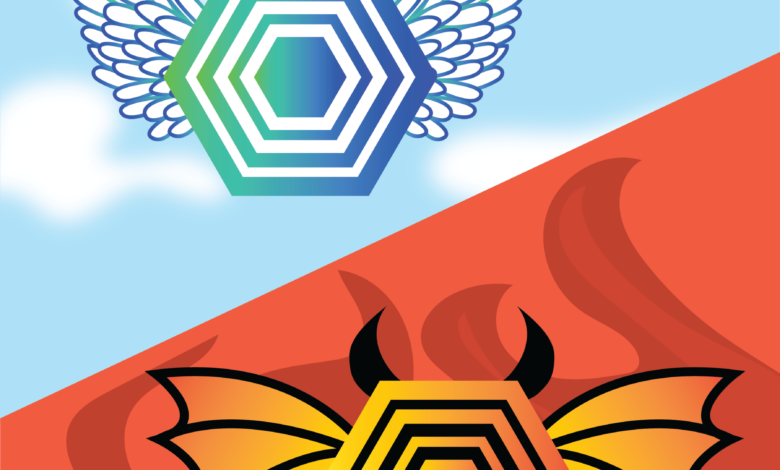
AI’s academic value debated by professors; universitywide policy to be reevaluated
By Caroline Haviland
Artificial intelligence began plaguing Rider classrooms in 2022 with the introduction of ChatGPT – an AI chatbot that uses machine learning to respond to human language. In response to the new AI challenges, a task force was created to draft a proposal that incorporates the new technology into the school code of academic integrity.
The result of this proposal, however, led to confusion rather than solutions on where the university stands: is AI in academia an instrument or an invader?
AI as a tool
Provost DonnaJean Fredeen organized the academic integrity task force, hoping to add to the the current policy a universitywide agreement on AI in the classroom. The final proposal awaits approval from the university academic policy committee.
“There was a task force last year on academic integrity, and they were bringing forward a policy that makes it very clear [that] the use of AI is considered academic dishonesty unless the professor has very, very clearly stated it can be used,” Fredeen said in a Sept. 9 interview with The Rider News. “That will be making its way through the [university academic policy committee] this semester.”
Associate Professor Wil Lindsay served as the committee chair, but he could not comment on the content of the proposal due to its delayed deliberation.
“It’s getting stalled because people in various places don’t agree, and we want more student input,” said Lindsay. “There’s just not enough agreement on it at this point.”
Lindsay, who teaches game and interactive media design, uses AI in his courses, a choice he said “everyone needs to take with a grain of salt.”
“AI is a conglomerate of existing work. It’s not super effective for final products, but it works great for prototyping,” said Lindsay. “You can’t go to an AI and say ‘make me this game.’ We teach it as a tool in game design just like any other software.”
The use of AI for various sections of visual arts, such as videos and photos, is not as advanced in comparison to its writing capabilities, making it reliable for prototyping concepts.
The advanced technology can skip steps for Lindsay’s students with features, including para programming, which replaces the coding once done by a programmer in game design. This causes concern for the future jobs devoted to tasks like this.
“Those people might be losing their jobs, I wouldn’t doubt that. But at the same time there will be other jobs and other sectors improving that AI,” said Lindsay.
AI infractions
Olivia Newman; chair of the Department of Government, Politics and Law; is one of many professors who adamantly opposes AI. She worries these large language learning models undercut processes like working through and comprehending dense text and analyzing people’s ideas.
“There were already big challenges with student attention spans post-pandemic, and their sticktoitiveness to get through challenging assignments,” said Newman. “Everyone came out of the pandemic banged up, and now with AI coming in at this place, it’s a very tempting short-cut.”
Newman’s department created a policy that strictly bans AI use for all assignments, which could create a confusing landscape for students in regards to other AI policies in different departments. Newman said, however, that coming to a unanimous, universitywide agreement might be a losing battle.
“You could ask AI to help you brainstorm for a paper, and maybe that would help at the moment, but I want students who can brainstorm for themselves and not become dependent on artificial intelligence,” said Newman.
Lindsay added he could not say whether the finalization of the policy would take “several weeks or months.”


